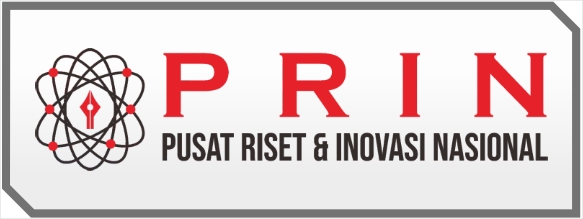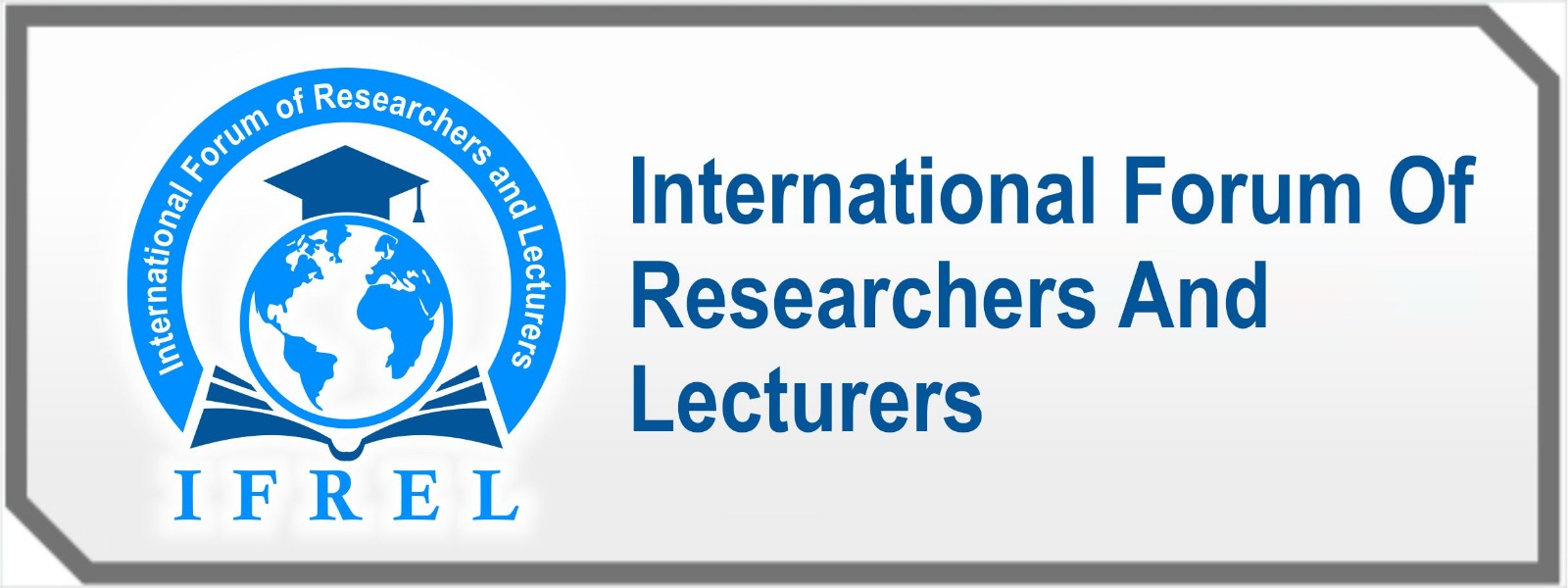Analysis Of Entrepreneurial Soft Skills In Improving MSME Business Sustainability In Pasuruan Mangrove Tourism Area
DOI:
https://doi.org/10.55606/ijemr.v3i1.162Keywords:
Soft Skill Entrepreneurship, MSMEs, Business SustainabilityAbstract
The mangrove tourism area in Pasuruan has become an important economic potential through the existence of Micro, Small and Medium Enterprises MSMEs. This phenomenon shows that MSMEs have a strategic role in building the local economy, especially in the tourism sector. MSMEs in the Pasuruan mangrove tourism area may face unique challenges related to entrepreneurial soft skills that can affect their business sustainability. This issue involves local factors such as culture, markets, and local government policies. Ideally, MSMEs in the Pasuruan mangrove tourism area need to understand and develop entrepreneurial soft skills to maintain and improve the sustainability of their business. This research aims to provide deeper insight and understanding regarding the role of entrepreneurial soft skills in supporting MSME business sustainability. Although there are several studies related to entrepreneurship and business sustainability, there is still a research gap, especially in the context of MSMEs in the Pasuruan mangrove tourism area. The novelty of this research lies in its focus on entrepreneurial soft skills in the context of MSME business in the Pasuruan mangrove tourism area, which has not been studied in depth before. The sustainability of MSME business has a positive impact on local economic growth and regional development. Therefore, a better understanding of the role of entrepreneurial soft skills is very urgent to improve the competitiveness and sustainability of MSMEs in the Pasuruan mangrove tourism area. The main objective of this study is to analyze the role of entrepreneurial soft skills in improving MSME business sustainability in the Pasuruan mangrove tourism area, by exploring its positive impact on economic and social aspects. This research use desciptive qualitative approach. The research subjects involved MSMEs. Data collection was carried out through observation, interviews and documentation. Data analysis involves data reduction, display, and inference, with triangulation used to ensure validity.The results of research, observations, and interviews show that in this study, MSME actors in the Pasuruan Mangrove Tourism Area showed creativity, adaptability, and good communication skills. They also have quick collaboration and problem-solving skills. The success of MSME businesses is reflected in their resilience to environmental changes and market dynamics. Close partnerships with local communities also make a positive contribution. Their business strategy involves product diversification, technology utilization, and external cooperation, while maintaining environmental sustainability. Recommendations involve soft skills training and support on product innovation to improve competitiveness and business sustainability.
References
Afthanorhan, A., Awang, Z., Salleh, F., Ghazali, P. L., &; Rashid, N. (2018). The effect of product quality, medical price and staff skills on patient loyalty via cultural impact in medical tourism. Management Science Letters, 8(12), 1421–1428. https://doi.org/10.5267/j.msl.2018.10.004
Ali, S., Maharani, L., &; Untari, D. T. (2019). Development of religious tourism in Bandar Lampung, Indonesia. African Journal of Hospitality, Tourism and Leisure, 8(5), 1–8.
Arsawan, I. W. E., Koval, V., Rajiani, I., Rustiarini, N. W., Supartha, W. G., &; Suryantini, N. P. S. (2022). Leveraging knowledge sharing and innovation culture into SMEs sustainable competitive advantage. International Journal of Productivity and Performance Management, 71(2), 405–428. https://doi.org/10.1108/IJPPM-04-2020-0192
Chan, K. M. A., Boyd, D. R., Gould, R. K., Jetzkowitz, J., Liu, J., Muraca, B., Naidoo, R., Olmsted, P., Satterfield, T., Selomane, O., Singh, G. G., Sumaila, R., Ngo, H. T., Boedhihartono, A. K., Agard, J., de Aguiar, A. P. D., Armenteras, D., Balint, L., Barrington-Leigh, C., ... Brondízio, E. S. (2020). Levers and leverage points for pathways to sustainability. People and Nature, 2(3), 693–717. https://doi.org/10.1002/pan3.10124
Elango, S., &; Suryakumar, M. (2022). Entrepreneurial celebrity endorsement and its influences on purchase behavior. International Journal of System Assurance Engineering and Management, 0123456789. https://doi.org/10.1007/s13198-022-01734-x
Esubalew, A. A., &; Raghurama, A. (2020). The mediating effect of entrepreneurs' competency on the relationship between Bank finance and performance of micro, small, and medium enterprises (MSMEs). European Research on Management and Business Economics, 26(2), 87–95. https://doi.org/10.1016/j.iedeen.2020.03.001
Fragoso, R., Rocha-Junior, W., &; Xavier, A. (2020). Determinant factors of entrepreneurial intention among university students in Brazil and Portugal. Journal of Small Business and Entrepreneurship, 32(1), 33–57. https://doi.org/10.1080/08276331.2018.1551459
Garcia Henche, B. (2018). Urban experiential tourism marketing: Use of social media as communication tools by the food markets of Madrid. Journal of Tourism Analysis, 25(1), 2–22. https://doi.org/10.1108/JTA-01-2018-0002
Gieure, C., Benavides-Espinosa, M. del M., &; Roig-Dobón, S. (2020). The entrepreneurial process: The link between intentions and behavior. Journal of Business Research, 112(July), 541–548. https://doi.org/10.1016/j.jbusres.2019.11.088
Hermawati, A. (2020). Transglobal leadership approach to sustainable tourism competitiveness at tourism sector-engaged MSMEs through integrated human resource performance and responsible marketing. International Journal of Tourism Cities, 6(4), 863–883. https://doi.org/10.1108/IJTC-06-2019-0085
Heydari Chianeh, R., Del Chiappa, G., &; Ghasemi, V. (2018). Cultural and religious tourism development in Iran: prospects and challenges. Anatolia, 29(2), 204–214. https://doi.org/10.1080/13032917.2017.1414439
Hidayat, M., Latief, F., Bahasoan, S., Widiawati, A., &; Nianty, D. A. (2020). Factors Influencing Resilience of Micro Small and Medium Entrepreneur (MSME) during COVID 19 Outbreak in South Sulawesi Province Indonesia. TEST Engineering &; Management, 83(May-June 2020), 26707–26721. https://doi.org/10.31219/osf.io/cme2j
Hudnurkar, M., Ambekar, S., Bhattacharya, S., & Sheorey, P. A. (2022). Relationship of total quality management with corporate sustainability in the MSME sector: does innovation capability play a mediating role? TQM Journal. https://doi.org/10.1108/TQM-03-2022-0095
Kilay, A. L., Simamora, B. H., &; Son, D. P. (2022). The Influence of E-Payment and E-Commerce Services on Supply Chain Performance: Implications of Open Innovation and Solutions for the Digitalization of Micro, Small, and Medium Enterprises (MSMEs) in Indonesia. Journal of Open Innovation: Technology, Market, and Complexity, 8(3). https://doi.org/10.3390/joitmc8030119
Kurniawan, Maulana, A., &; Iskandar, Y. (2023). The Effect of Technology Adaptation and Government Financial Support on Sustainable Performance of MSMEs during the COVID-19 Pandemic. Cogent Business and Management, 10(1). https://doi.org/10.1080/23311975.2023.2177400
Labanauskaitė, D., Fiore, M., &; Stašys, R. (2020). Use of E-marketing tools as communication management in the tourism industry. Tourism Management Perspectives, 34(November 2019). https://doi.org/10.1016/j.tmp.2020.100652
Liguori, E. W., Bendickson, J. S., & McDowell, W. C. (2018). Revisiting entrepreneurial intentions: a social cognitive career theory approach. International Entrepreneurship and Management Journal, 14(1), 67–78. https://doi.org/10.1007/s11365-017-0462-7
Long, T. B., Looijen, A., & Block, V. (2018). Critical success factors for the transition to business models for sustainability in the food and beverage industry in the Netherlands. Journal of Cleaner Production, 175, 82–95. https://doi.org/10.1016/j.jclepro.2017.11.067
Lynch, M., Kamovich, U., Longva, K. K., &; Steinert, M. (2021). Combining technology and entrepreneurial education through design thinking: Students' reflections on the learning process. Technological Forecasting and Social Change, 164(June 2019), 119689. https://doi.org/10.1016/j.techfore.2019.06.015
Machali, I., Wibowo, A., Murfi, A., &; Narmaditya, B. S. (2021). From teachers to students creativity? the mediating role of entrepreneurial education. Cogent Education, 8(1). https://doi.org/10.1080/2331186X.2021.1943151
Mardjuni, S., Thanwain, Nur, I., Abubakar, H., Menne, F., &; Karim, A. (2022). Business Sustainability in Food and Beverage Processing Industry Through Innovation in Maros Regency, Indonesia. Journal of Southwest Jiaotong University, 57(6), 995–1003. https://doi.org/10.35741/issn.0258-2724.57.6.85
Meekaewkunchorn, N., Szczepańska-Woszczyna, K., Muangmee, C., Kassakorn, N., &; Khalid, B. (2021). Entrepreneurial orientation and sme performance: The mediating role of learning orientation. Economics and Sociology, 14(2), 294–312. https://doi.org/10.14254/2071-789X.2021/14-2/16
Metallo, C., Agrifoglio, R., Briganti, P., Mercurio, L., &; Ferrara, M. (2021). Entrepreneurial Behaviour and New Venture Creation: the Psychoanalytic Perspective. Journal of Innovation and Knowledge, 6(1), 35–42. https://doi.org/10.1016/j.jik.2020.02.001
Nuseir, M. T., Basheer, M. F., &; Aljumah, A. (2020). Antecedents of entrepreneurial intentions in smart city of Neom Saudi Arabia: Does the entrepreneurial education on artificial intelligence matter? Cogent Business and Management, 7(1). https://doi.org/10.1080/23311975.2020.1825041
Ogheneogaga Irikefe, P., & Isaac Opusunju, M. (2021). Effect of Financial Literacy on the Growth of MSMEs. International Journal of Research Publications, 90(1). https://doi.org/10.47119/ijrp1009011220212541
Oumlil, R., &; Juiz, C. (2018). Acceptance of tourism e-entrepreneurship: Application to educational balearic islands context. Journal of Entrepreneurship Education, 21(1), 1–16.
Purbasari, R., Muttaqin, Z., &; Sari, D. S. (2021). Digital Entrepreneurship in Pandemic Covid 19 Era: The Digital Entrepreneurial Ecosystem Framework. Review of Integrative Business and Economics Research, 10(S1), 114–135. https://pesquisa.bvsalud.org/global-literature-on-novel-coronavirus-2019-ncov/resource/en/covidwho-1077286
Rashid, A. G. (2018). Religious tourism – a review of the literature. Journal of Hospitality and Tourism Insights, 1(2), 150–167. https://doi.org/10.1108/JHTI-10-2017-0007
Ratnasari, R. T., Gunawan, S., Mawardi, I., &; Kirana, K. C. (2020). Emotional experience on behavioral intention for halal tourism. Journal of Islamic Marketing, 12(4), 864–881. https://doi.org/10.1108/JIMA-12-2019-0256
Santoso, R. (2020). Review of Digital Marketing &; Business Sustainability of E-Commerce During Pandemic Covid19 In Indonesia. Journal of Applied Economics, 5(2), 36–48.
Šimunović, N., Hesser, F., &; Stern, T. (2018). Frame analysis of ENGO conceptualization of sustainable forest management: Environmental justice and neoliberalism at the core of sustainability. Sustainability (Switzerland), 10(9), 1–22. https://doi.org/10.3390/su10093165
Srimulyani, V. A., &; Hermanto, Y. B. (2022). Impact of Entrepreneurial Self-Efficacy and Entrepreneurial Motivation on Micro and Small Business Success for Food and Beverage Sector in East Java, Indonesia. Economies, 10(1). https://doi.org/10.3390/economies10010010
Thompson, B. S., Gillen, J., &; Friess, D. A. (2018). Challenging the principles of ecotourism: insights from entrepreneurs on environmental and economic sustainability in Langkawi, Malaysia. Journal of Sustainable Tourism, 26(2), 257–276. https://doi.org/10.1080/09669582.2017.1343338
Tomljenović, R., &; Dukić, L. (2018). Religious Tourism - from a Tourism Product to an Agent of Societal Transformation. January, 1–8. https://doi.org/10.15308/sitcon-2017-1-8
Wang, S., Hung, K., &; Huang, W. J. (2019). Motivations for entrepreneurship in the tourism and hospitality sector: A social cognitive theory perspective. International Journal of Hospitality Management, 78(November 2018), 78–88. https://doi.org/10.1016/j.ijhm.2018.11.018
Wantara, P., &; Tambrin, M. (2019). ITHJ International Tourism and Hospitality Journal The Effect of Price and Product Quality Towards Customer Satisfaction and Customer Loyalty on Madura Batik. International Tourism and Hospitality Journal, 2(1), 1–9. https://rpajournals.com/ithj:https://rpajournals.com/ithj
Yanto, H., Kiswanto, Baroroh, N., Hajawiyah, A., &; Rahim, N. M. (2022). THE ROLES OF ENTREPRENEURIAL SKILLS, FINANCIAL LITERACY, AND DIGITAL LITERACY IN MAINTAINING MSMEs DURING THE COVID-19 PANDEMIC. Asian Economic and Financial Review, 12(7), 504–517. https://doi.org/10.55493/5002.v12i7.4535
Yin, D., Ming, X., &; Zhang, X. (2020). Sustainable and smart product innovation ecosystem: An integrative status review and future perspectives. Journal of Cleaner Production, 274, 123005. https://doi.org/10.1016/j.jclepro.2020.123005
Downloads
Published
How to Cite
Issue
Section
License
Copyright (c) 2023 International Journal of Economics and Management Research

This work is licensed under a Creative Commons Attribution-ShareAlike 4.0 International License.















